“I succeeded by saying what everyone else was thinking."
The Emmy-winning and Tony and Grammy-nominated comedian Joan Rivers always said this in interviews about her career, and it was true. The often caustic and always hilarious comedian pushed every envelope. No topic, most especially not herself, was off limits. Her humor was always bold and frequently brave and she was a trailblazer for female comedians. Rivers talked about things no one–especially not a woman–had talked about before from the stage.
Rivers was credited with being the first female confessional comic and broke ground everywhere she went–including as the first female comedian to ever perform at Carnegie Hall and the first female comedian to be in the top-twenty on the Billboard chart with a comedy album.
Those latter two were in the 1980s, which says a lot about how much glass-ceiling smashing Rivers did.
In the early 1960s she talked about how women were expected to be wives first and foremost: "A woman who’s 30 years old and not married, she’s an old maid. A man who’s 90 years old and not married, he’s a catch," she told a shocked audience on The Ed Sullivan Show. In 2014, she talked about the perils of female old age: "No one says this, but the vagina drops. I looked down a few years ago and thought, ‘Why am I wearing a bunny slipper?’"
Even when you knew youreally shouldn’t, you could not help laughing at Joan Rivers–her monologues, her one-liners, her fashion critiques. (Anna Kendrick tweeted, "RIP Joan Rivers. Being publicly told that my dress is hideous will never feel quite as awesome. You will be truly missed.")
When her daughter Melissa, with whom Rivers shared the red carpet and the WEtv reality show Joan & Melissa: Joan Knows Best announced her passing on Thursday afternoon, millions took to Twitter to express their sadness and their love for the comedy icon. The 81-year-old Rivers died Sept. 4 after a week on life-support following complications of vocal-cord surgery. The consensus from celebrities and the rest of us was clear: the world had lost a comedy legend. Roseanne put it most succinctly in her tweet, "Hail, Hail, a GENIUS has exited this realm."
Other comedians followed suit with their commemorations. Ellen wrote, "Joan Rivers will always be a pioneer. She paved the way for a lot of comedians. I’m very sad she’s gone." Kathy Griffin, a frequent guest of Rivers’ and a purveyor of the same caustic humor, tweeted, "A legend, a friend, a mentor, an icon, and wildly funny. One of a kind. RIP Joan Rivers." Jane Lynch’s tweet read, "Joan Rivers Godspeed my sweet. Thanks for all the laughs. Thanks for all the love. I miss you already."
Whoopi Goldberg, another long-time friend of Rivers’ wrote, "My friend Joan Rivers has passed away–once again to quote Billy Crystal… there are no words. Bon Voyage Joan." Samuel L. Jackson expressed the conflict some had over his old friend, "Love Her or Hate Her, we’re gonna miss JOAN RIVERS. I always respected her go for broke humor. One of a kind. R.I.P." Orlando Jones echoed Jackson, "RIP #JoanRivers trail blazing force in comedy who never suffered fools & wasn't shy about speaking her mind. Condolences to loved ones."
Rivers was beloved by women and men, white and black, young and old, gay and straight–unlike many comedians whose humor lost touch with the Zeitgeist, Rivers reinvented herself time and again, staying in touch with the issues of the moment as well as those that never seemed to change–like women’s second-class status in the world.
For those who only knew Rivers’ E! TV show, The Fashion Police and her always outrageous and sometimes cringe worthy pre-Oscar red carpet take downs of the badly dressed, go to Netflix and rent Ricki Stern and Anne Sundberg’s fabulous and compellingly feminist documentary, Joan Rivers: A Piece of Work. The 2010 film is a clear-eyed look at the comedian’s long career, incredible work ethic, hilarious club acts and deeply personal moments.
The film also makes quite clear that Rivers, who broke ground for women comedians everywhere when she became a regular on TV in the 1960s as a solo act, not the female foil in a husband-wife team, faced sexism and outright misogyny at nearly every turn. Sadly this includes the man who initially gave her an opening as a novelty act, Johnny Carson, who would later refuse to take her calls after she got her own show on late night opposite his. She said when she called to tell him the news–and thank him for giving her a start–he would not speak to her. Carson’s ending of their long friendship was something Rivers said she never got over.
In 2014 when female comedians like Ellen DeGeneres, Roseanne, Kathy Griffin, Margaret Cho, and Chelsea Handler have their own shows,it may be hard to remember that when Rivers came out in a voluminous muumuu on The Ed Sullivan Show (introduced as "little Joan Rivers") to cover the fact that she was pregnant, she could only refer to her pregnancy as "we’ll soon be hearing the pitter-patter of little feet." Married couples still slept in twin beds on TV and the word "pregnant" could not be mentioned for fear of offending...someone. But Rivers still pushed that envelope as hard as she could.
Rivers’ debut on The Tonight Show with Johnny Carson in 1965 was both the start of her on-screen career (she had been writing comedy for The Ed Sullivan Show’s famous Italian mouse puppet Topo Gigio) and the start of the misogyny she would face throughout that 49 year TV career.
Joan Rivers’ first appearance on The Ed Sullivan Show, the top-rated prime-time program in the country at the time,was on May 22,1966 and was an accident. Prior to that appearance, Rivers had been involved in the show as a writer. Sullivan was supposed to announce the next week’s acts which included singer Johnny Rivers. But instead Sullivan said Joan Rivers–so they had to book her.
She would become a regular stand-up act on the show. The only female comedian at the time.
But it was in Greenwich Village clubs and among gay audiences that Rivers got her start, singing and telling jokes. She would also star as a lesbian opposite a then-unknown Barbra Streisand in a 1959 off-Broadway play, Driftwood, where the two shared a kiss. Later, Rivers would joke that "Barbra was all tongue."
Rivers’ connection to the gay community began the day she moved from her native Larchmont, NY to Manhattan in 1958 at the age of 25 and started hanging out with her gay audiences. That connection continued till her death. She was a supporter of HIV/AIDS causes before the red ribbon trendiness. E News posted an interview with Rivers in 2013 in which the comedian discussed the early days of the epidemic and her efforts to get help for her gay friends. Her desire to aid a hairdresser friend led to feeding other people with AIDS. According to E News, Rivers has supported the non-profit God’s Love We Deliver ever since. The organization now feeds 4,500 people daily in New York.
In 2009 at the age of 76–the same year she won Celebrity Apprentice–Rivers was still volunteering in the kitchen. Dressed to the nines as always, with her signature jewelry, but with a hairnet and an apron.
Jonathan Capehart, gay columnist for the Washington Post, wrote a sweet and charming tribute to Rivers on Sept. 4 in which he explained how much he had loved her pushing the comedic envelope and how much it had meant to him personally to see her do that–that it gave many who had been silenced permission to speak. Many of the RIP tweets on Twitter were from gay comedians, like Lynch or Modern Family’s Jesse Tyler Ferguson who tweeted, "My heart is broken." Rivers wasn’t gay, but she broke silences for so many.
In those early years of her career Rivers did temp work, wrote jokes, did stand up and kept at it. Her earliest gig was in strip club as Pepper January. Born Joan Molinsky in Brooklyn and then growing up in the suburbs, she changed her stage name to Rivers, after one of her early managers. She wrote jokes for other people and for TV, including Candid Camera.
In the early 1960s she was often referred to as the "female Woody Allen," but their comedic strengths shared only a few things–being Jewish, self-deprecation and the genius of making people laugh. They were both storytellers, but the story Rivers was telling was one people hadn’t heard before. It was the story of women’s angst–about body, about men, about sex, about the different rules for both sexes–especially the ones that turned men into lotharios and women into tramps.
Rivers said she learned from Lenny Bruce that you could be famous speaking the truth–which she had been doing all along–even if it meant some people would be offended. She told Yael Kohen, author of We Killed: The Rise of Women in American Comedy, "I was talking about things that were really true. I was talking about having an affair with a married professor and that wasn’t a thing a nice Jewish girl talked about. And I was talking about my mother, desperate to get my sister and me married. I was talking about my gay friend, Mr. Phyllis, and you just didn’t talk about that. It sounds so tame and silly now, but my act spoke to women who weren’t able to talk about things. How nice it was to have a girl that’s fairly attractive stand up and say, my mother wants me to get married but I don’t want to."
Rivers’ career was a roller coaster of high highs and low lows and very little middle. In 1987 her husband, Edgar Rosenberg–also her manager–committed suicide at the Four Seasons Hotel in Philadelphia. Rosenberg was despondent over Rivers’ show being cancelled when she insisted Rosenberg be retained as a producer when Fox wanted to fire him. His suicide sent Rivers into a depressive spiral of her own and caused a schism between her and daughter Melissa that lasted several years.
Rivers never remarried and said in an interview with ABC anchor David Muir that she never got over his death–her heartbreak or her anger. She was an activist for suicide prevention and an honorary director of the American Foundation for Suicide Prevention. It was just one of many activist causes she championed.
Rivers did not stay down long. The hallmark of her long career was her legendary work ethic. In 1990 she won an Emmy for her new daytime show, The Joan Rivers Show, which ran for five years.
In a tribute to her on Thursday night, David Letterman, on whose show she had been a guest many times, said she was the hardest working comedian he knew. Talking with his band leader Paul Schaeffer about Rivers Letterman said, "Talk about guts. She was indefatigable. She would be on this show, she would be on all the shows, and she would also work about 300 dates a year. That’s a lotta work, that’s a lotta travel. And here she is 81 years old and still doing it and as funny today as she was when she first got into it."
Letterman, nearly breaking into laughter, noted, "And talk about guts. She would come out here and sit in this chair and say some things that were un-be-lieve-able. Just where you would have to swallow pretty hard and twice and yet it was hilarious. And she stood behind her jokes and to my knowledge she would say these things and never apologize because she would say, ‘hey, I’m a comedian, these are jokes.’"
Letterman added, "There are no victimless jokes, and she was harder on herself than on anybody. She would tell these God-awful jokes about herself and she would tell them about other people. And grow up, please, these are just jokes."
Letterman looked down for a moment, clearly emotional, as he had been last month over his good friend, comedian Robin Williams’ death. "The force and power of her comedy was overwhelming," Letterman said, saying that when she had come on his show after he had not seen her in several years, "I had forgotten she was that funny. Oh my God, she was hilarious."
Letterman went on to laud the totality of her career, which he said he had been unaware of–her jewelry line that she sold through QVC, a network she helped put on the map, her 12 books of comedy, all of them best-sellers. "I haven’t read 12 books," he quipped, in awe of her accomplishments.
Other late night comedians lauded her as well, among them Jimmy Fallon. In March Jimmy Fallon broke NBC’s long, unspoken ban on Rivers being allowed on The Tonight Show, inviting her back after the quarter-century exile imposed by Carson and upheld by Jay Leno and Conan O’Brien in a shocking old-boys-comedy-network blacklisting.
Her spot with Fallon was characteristic Rivers all the way. Late for the show because her ride from the airport was stuck in traffic, she complained about how the Mercedes limo had broken down. "And I’m thinking, the Germans killed six million Jews, they can’t fix a fucking carburetor?" Fallon, whose show is live, had his head in his hands, the audience was howling as was guest Russell Crowe. Finally Fallon stopped laughing long enough to say, "Welcome back to the network, Joan."
Rivers continued, still the center of her own jokes, but leaving no one else unscathed, ranting briefly about WASPS and how devoid of emotion they are compared to "us ethnics." Fallon pulled out a picture of Rivers and Carson in the very same studio and Rivers, who has touted her many plastic surgeries said, "Look at me, my legs are good, my breasts are in the right place."
On Sept. 4, Fallon paid tribute to Rivers on his show, echoing Letterman’s lauding of how hard-working she was, noting that he had visited her and seen her filing cabinets filled with jokes and how amazing it was.
Jimmy Kimmel also commented on her comedic greatness and ran a clip from her guesting on his show. In the clip Rivers is talking about her grandson with Kimmel who asks her about him. "Well, right now he wants to be a football player." Kimmel asks her, "What do you want him to be?"
Without skipping a beat, Rivers says, "Gay. I want him to be gay." When Kimmel, laughing, asks why, she says, "Who else will appreciate that I was friends with Judy Garland?"
The accolades kept coming from late night hosts and comedians. Louis CK told the Associated Press, "She loved living and working. She was kind. She was real. She was brave. She was funny and you just wanted to be around her. I looked up to her. I learned from her. I loved her. I liked her. And I already miss her very much."
That love being showered on Rivers in death was not how she had been treated by late night in life, however. Despite being one of the most popular American comedians for decades–from her stints on Hollywood Squares and other comedy shows to her sold-out shows in Las Vegas to those best-selling books–she became an outcast on late night as anything but the occasional guest.
In 2014 the landscape of late night network comedy remains the same as it was 50 years ago in 1964 when Rivers first sat down with Jack Paar as a guest: All white, all male. Letterman retires next year and his replacement? Not a woman, but Stephen Colbert. Craig Ferguson is retiring at the end of this year and his replacement was announced last month–James Corden. One more white man.
Rivers is still the only woman to have ever hosted a late night network comedy hour–first as a fill-in host for Carson when he was on vacation, and then with her own show, The Late Show with Joan Rivers on the newly formed Fox network in 1984. But she was never welcomed. When she got the gig with Fox, “The Rift,” as The New York Times to People called it, overshadowed her work and what should have been an exciting moment for women in entertainment. Johnny Carson was portrayed as Rivers’ victim–something that would never have happened to a male comedian who had worked as hard as Rivers had. As Rivers told the Washington Post in 1986 "I’m used to vilification. No, I’m not. You’re never used to it. You just say, ‘Oh please! Here we go again!"
She noted that it was Carson who snubbed her, not the other way around. "Now he’s the grand old man and I’m the garbage!" Yet Fox had a handful of affiliates and NBC had more than 200.
The Washington Post article shows how little has changed in 28 years. The Post wrote then: "It may even have something to do with the persistence of sexism–not that anyone other than Rivers seems to be arguing the point. When a television anchor jumps stations for bigger bucks and better billing, he’s going for it, looking out for his interests, striking out on his own. When Rivers follows suit, she is ingratitude itself, or so implied a recent New York Times story, which went on to ask snippily ‘whether the country really needs another late-night talk show.’"
With a woman at the helm was the unspoken subtext.
That 1986 Washington Post interview also had this prescient quote about Rivers future obituary: "Oh, they’ll probably say I reflected life. That I spoke for women. That I was the first to come out in a man’s world and say, ‘Hey, we can say those things, too.’ I tell my husband Edgar Rosenberg ‘You watch! It’ll all be there the day I die.’ "
It is. And then some.
Rivers’ risqué humor offends many. Yet her humor opened the door wide for other women comedians to use similar comedy and tell similar truths and be allowed to say all the words George Carlin said would never be allowed. Roseanne, Chelsea Handler, Margaret Cho, Kathy Griffin, Aisha Tyler, Sheryl Underwood, Lea DeLaria are among the stand up comedians in Rivers’ image. Women’s talk shows like ABC’s The View and CBS’s The Talk borrow heavily from Rivers’ edgy style.
In the end singer Jordin Sparks’ tweet speaks for many of us and points to the fact that Rivers comedy combined with her genuineness and willingness to embrace and promote younger artists, especially gays and women of color, was her greatest legacy.
Sparks wrote, "Oh, Joan. Thank you for being so kind to me & making me laugh until tears in those moments I got spend with you. Rest in peace."
Beautiful.
Rivers’ humor might have been knife edge, but perhaps we just weren’t used to seeing it come from a woman. As Letterman said, "they’re jokes, people." And Rivers had a million of them. Yet on her shows she was always kind and warm with her guests–that Jewish mother she joked about all the time. And in her personal life her philanthropy and activism were as legendary as those red carpet take-downs.
Louis CK said she loved life. Her daughter Melissa said she loved making people laugh. One of Rivers’ most telling quotes is this: "Yesterday is history, tomorrow is a mystery, today is God’s gift. That’s why they call it the present."
Joan Rivers slammed hard against that comedy glass ceiling and kept on doing it until her last gig, several days before that fateful surgery. She told her daughter she wanted a big splashy funeral and a lot of press about her passing.
Rivers might not have gotten the accolades she deserved in life, but she is getting them now, in death. RIP Joan. Leaving us laughing in spite of tears–what more could we ask for?
Victoria A. Brownworth is an award-winning journalist, editor and writer and the author and editor of nearly 30 books. She has won the NLGJA and the Society of Professional Journalists awards, the Lambda Literary Award and has been nominated for the Pulitzer Prize. She won the 2013 SPJ Award for Enterprise Reporting in May 2014. She is a regular contributor to The Advocate and SheWired, a blogger for Huffington Post and a contributing editor for Curve magazine and Lambda Literary Review. Her reporting and commentary has appeared in the New York Times, Village Voice, Los Angeles Times, Boston Globe andPhiladelphia Inquirer. Her book, From Where We Sit: Black Writers Write Black Youth won the 2012 Moonbeam Award for cultural & historical fiction. Her novels, Ordinary Mayhem and Cutting will both be published in winter 2014. @VABVOX





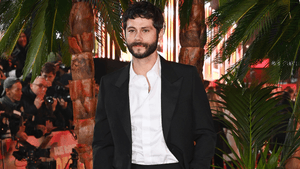


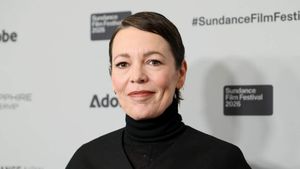


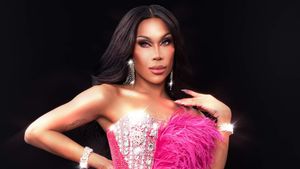








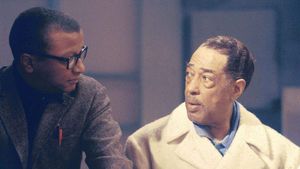
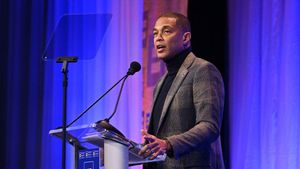



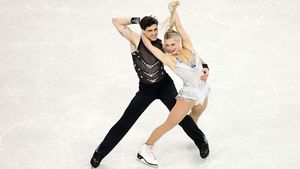




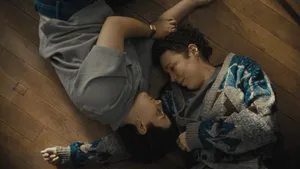



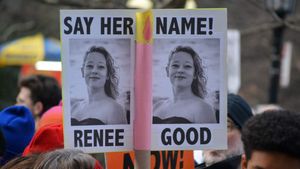











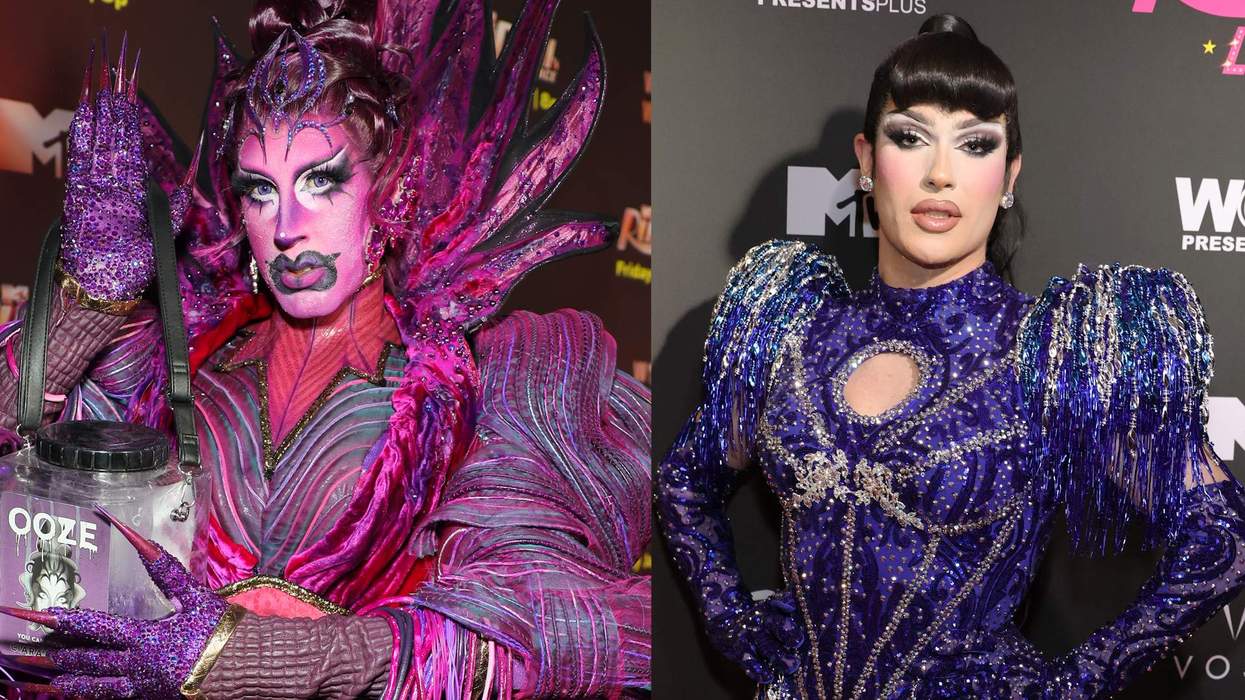
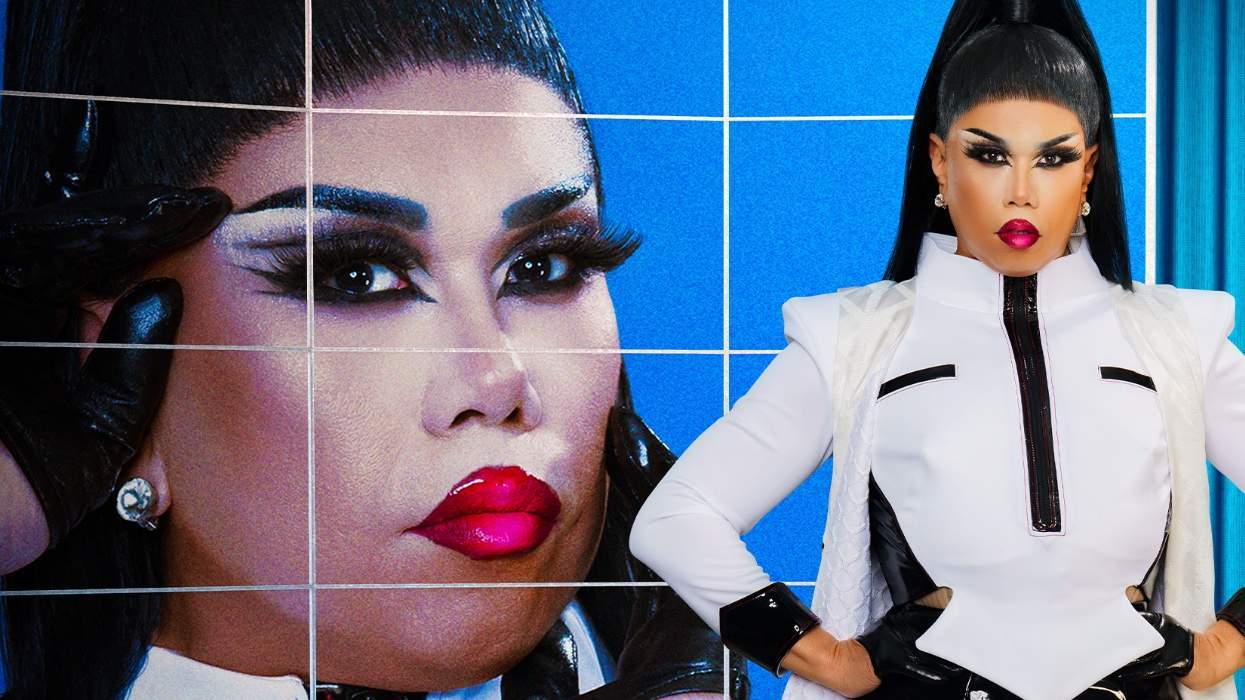
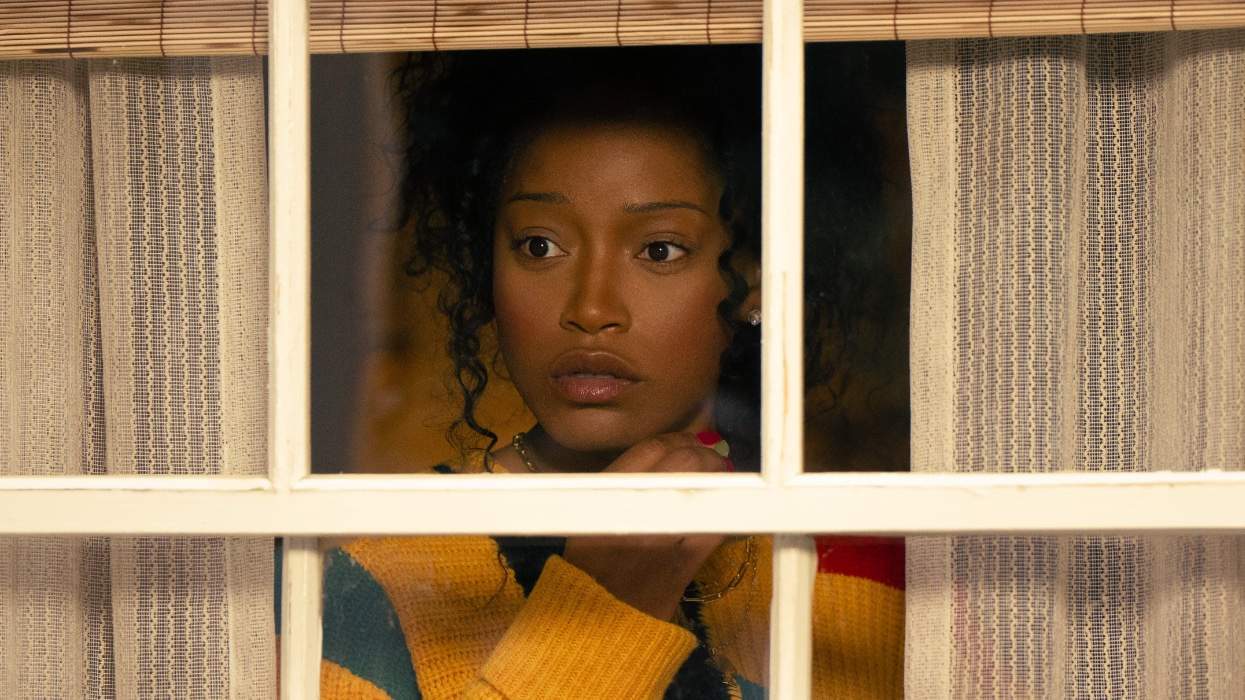



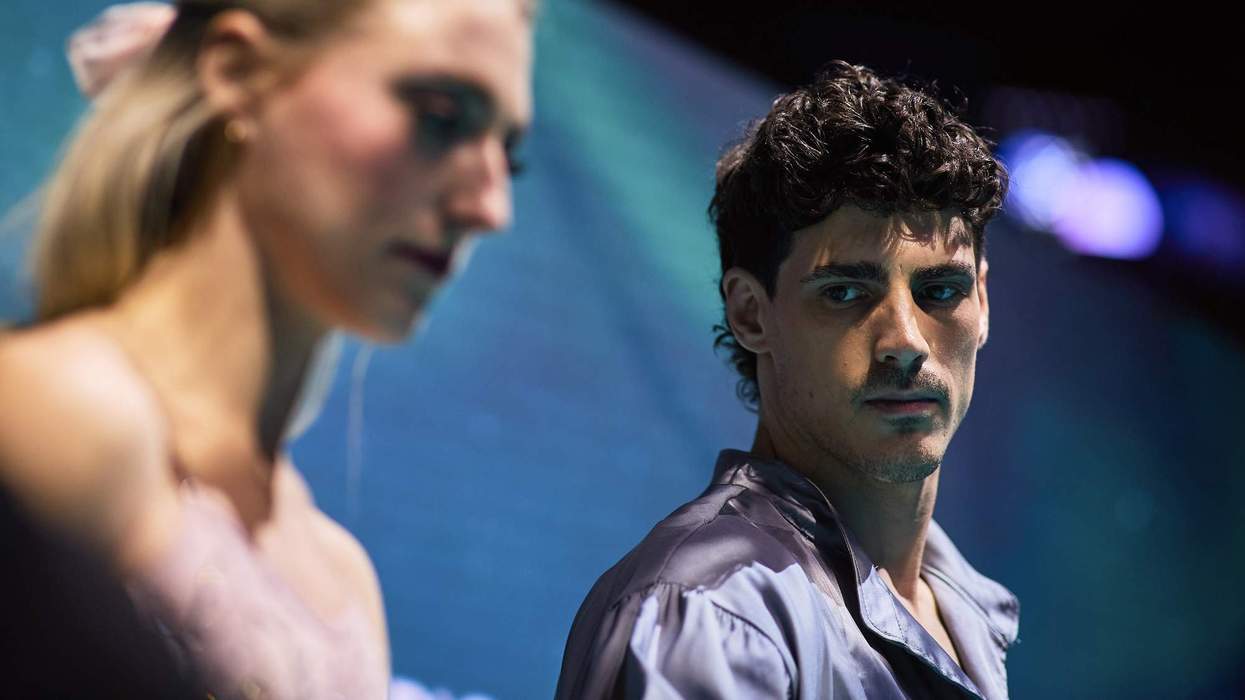

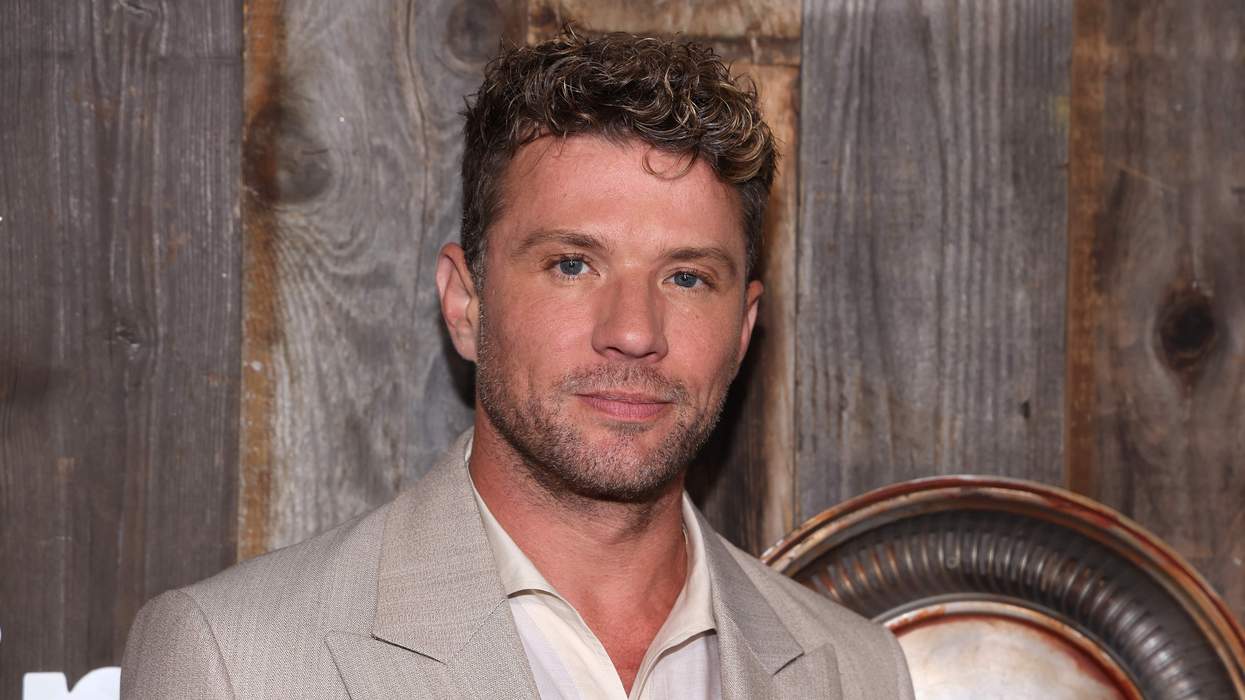
































 Cindy Ord/Getty Images
Cindy Ord/Getty Images























